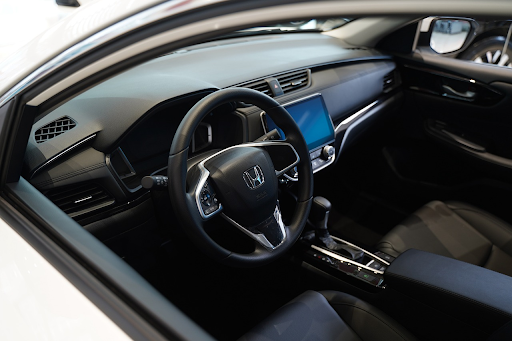5 minute read
Purchasing a vehicle, whether it is your first time, your last time, or somewhere in between, is a big financial decision. Your vehicle will be something you use nearly every day, so you want to make sure that you do a lot of research and evaluate your lifestyle before making the big purchase. To ensure that you are making the right decision, there are several factors to consider. Use the list below as a guide to help you find the right vehicle for your needs.
Budget and Financing
Every decision in life comes down to money and cars are no different. Before you even decide on a make or model, evaluate your financial situation and set a budget for yourself. This way, when you enter a dealership it is the first thing you can tell them and it will help the salesperson find the right vehicle for your price range.
Once you have a budget, decide on which financing option works best for you. If you have saved up enough money and you want to buy the car outright, then you will not have any monthly payments, but the more common choice is to get a loan and pay for the vehicle in monthly installments. You can also choose to get a lease instead, meaning that you will still have monthly payments, but you will not own the vehicle, you will only be using it for a few years before you can upgrade to a newer model.
Purpose and Usage
Everyone buys a car for different reasons, so you should think about your purpose for purchasing this vehicle. If you are looking for a family car because you are in a phase in life where you are having children, then the primary purpose is to fit a lot of passengers and keep those passengers safe. If you are looking for a vehicle that is equipped with modern technology, safety features, and great gas mileage, The new Honda prologue is stacked with high-quality features like wireless Apple Carplay/ Android Auto and safety sensors. Some cars have more safety features than others, so that is something to consider when you are making your choice.
As for usage, some people use their cars to go to the grocery store and back while others use them to commute long distances. The gas mileage of a vehicle is an important factor to consider depending on what you will be using the car for.
New versus Used
The choice between new and used comes down to budget and how much you really care about having a brand-new car versus one that is just new to you. If you are worried about a car with too many miles on it or you want the latest technology, then a new car is probably the right choice. If you just want a reliable car that may have some miles on it but has a good reputation for longevity, then a used car will work out great.
Safety Features
If you are going to invest in a new car, you might as well find one that has state-of-the-art safety technology. From backup cameras to hands-free parallel parking, these safety features are essential as roads get more and more busy. Make sure to also do research on the crash testing history of the vehicles you are considering to see if they pass the test.
Technology and Comfort
If you are going to be sitting in your car a lot, you want to make sure that is is as comfortable as possible. From climate control to cushioned seats, make sure to do test drives so that you know for sure that the car you are buying is comfortable. The technology in the car is also a big factor as many people prefer playing music from their mobile devices and want to be able to easily connect those to their cars. Other technologies like advanced navigational systems are important in the decision-making process.
Environmental Impact
The environment is a big concern for many people these days, so purchasing a car that has eco-friendly features is important. Many people do not want to buy a car that guzzles gas and has a low environmental impact rating, so popular choices right now are hybrid or electric vehicles. If this is a concern of yours, make sure to filter your search to only these types of vehicles.
Ownership Costs
The costs of a vehicle do not stop once you have signed the purchasing papers. Owning a car means that you are responsible for filling up up with fuel, maintaining the engine and battery, keeping it clean, and much more. You will also have to pay a registration fee in order to drive your vehicle on the road and that cost varies from state to state.
By keeping this checklist in mind, you can navigate the car buying process with ease and drive away with the perfect car.






